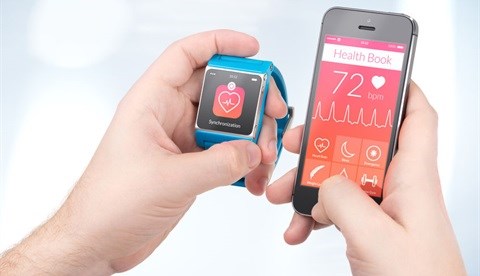
Top stories






More news


Marketing & Media
Ads are coming to AI. Does that really have to be such a bad thing?













In South Africa, 72% of respondents report various problems when they use new device types such as wearable fitness monitors, smart watches, smart home thermostats, in-vehicle entertainment systems, home connected surveillance cameras and security systems, and wearable health products.
The biggest challenges consumers face are that the smart devices are "too complicated to use" (25%), "did not work as advertised" (20%), and "set-up did not proceed properly" (18%).
"For these new connected device categories, high-tech companies need to go back to the drawing board and rethink their product development approaches to focus on the entire customer experience," said Lee Naik, MD Technology and Digital Strategy for Accenture in South Africa. "They should make fundamental strategic changes that no longer focus on product feature differentiation but rather holistic, digital experience differentiation."

Across all age groups, 35% mentioned buying "a trusted brand" as the most important criteria when deciding. Also, 33% cited "ease of use" and "product features and functionalities" as a buying decision factor.
While respondents revealed relatively modest purchase intentions over the next 12 months across the newer high-tech device categories, their purchase plans are much more robust over a five-year period.
Over the next 12 months, for example, 14% of consumers plan to buy a connected surveillance cameras and security system. However, within five years, 54% plan to do so. Within one year, 14% intend to buy a wearable fitness monitor, whereas 50% plan to do so within five years.
Other categories with strong purchase interest over the next five years include connected car entertainment systems at 48%, wearable health device and smartwatch at 47 each, home 3D printers and wearable heads-up display glasses at 40% each.
After several years of rapid growth, the survey revealed purchase intentions are trending downward in several major and more traditional high-tech product categories. From 2014 to 2015, the percentage of respondents who plan to purchase dropped for ten of the 12 product categories surveyed, including smartphones, tablets, laptop computers, HDTVs and desktop computers.
For example, while 61% intend to buy a smartphone in the next year, this was a three-point drop from 64% last year. Another notable decline was in tablets, where 41% intend to buy one in the next year, versus 51% last year. Similarly, 38% intend to buy a high-definition TV, an eight-point drop from 46% last year.
"As consumers' purchasing plans decline for mature device categories, high-tech companies need to replace lost revenues with sales in new categories such as wearable health and fitness monitors. These categories are prime examples of the expanding Internet of Things market, which will be a critical high-tech growth engine for many years to come."
The company views the Internet of Things as the convergence of intelligent products and services that communicate with each other, and with people, over global networks.
The survey found that trust is a big concern for consumers. More than half (52%) are not always confident about the security on the Internet of their personal data, such as email addresses, mobile phone numbers, and purchasing history. In addition, the percentage of people who are "not confident at all that the security of my personal data is protected on the Internet, so I never share information this way" rose from 5% last year to 8% this year.
A positive feeling about a company's brand is a key selection criterion when consumers purchase new devices-and the top criteria when they select a new smartphone. When asked to provide major reasons they are thinking of buying a particular smartphone, 54% said "I like this brand" and 39% indicated, "I already own devices from the same brand." Other important factors included "design-look and feel of the device" at 35%, "it runs the operating system I like" at 26%, and "availability of apps" at 23%.
The survey was conducted online in October and November 2014, with 24,000 consumers in 24 countries: Australia, Brazil, Canada, China, Czech Republic, France, Germany, India, Indonesia, Italy, Japan, Mexico, Netherlands, Poland, Russia, Saudi Arabia, South Africa, South Korea, Spain, Sweden, Turkey, United Arab Emirates, United Kingdom, and the United States.
The sample size in each country was representative of the online population, with respondents ranging in age from 14 to 55 and over. The survey polled respondents about their usage, attitudes and expectations related to digital device ownership, content consumption, broadband constraints, digital trust and the Internet of Things.